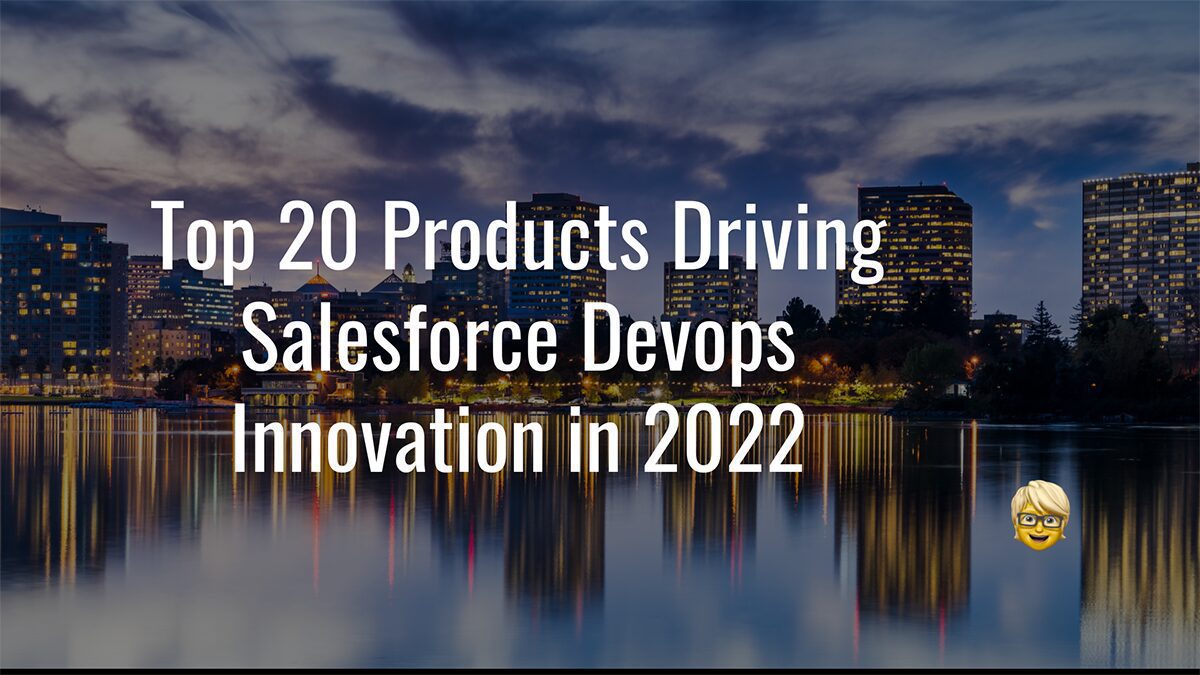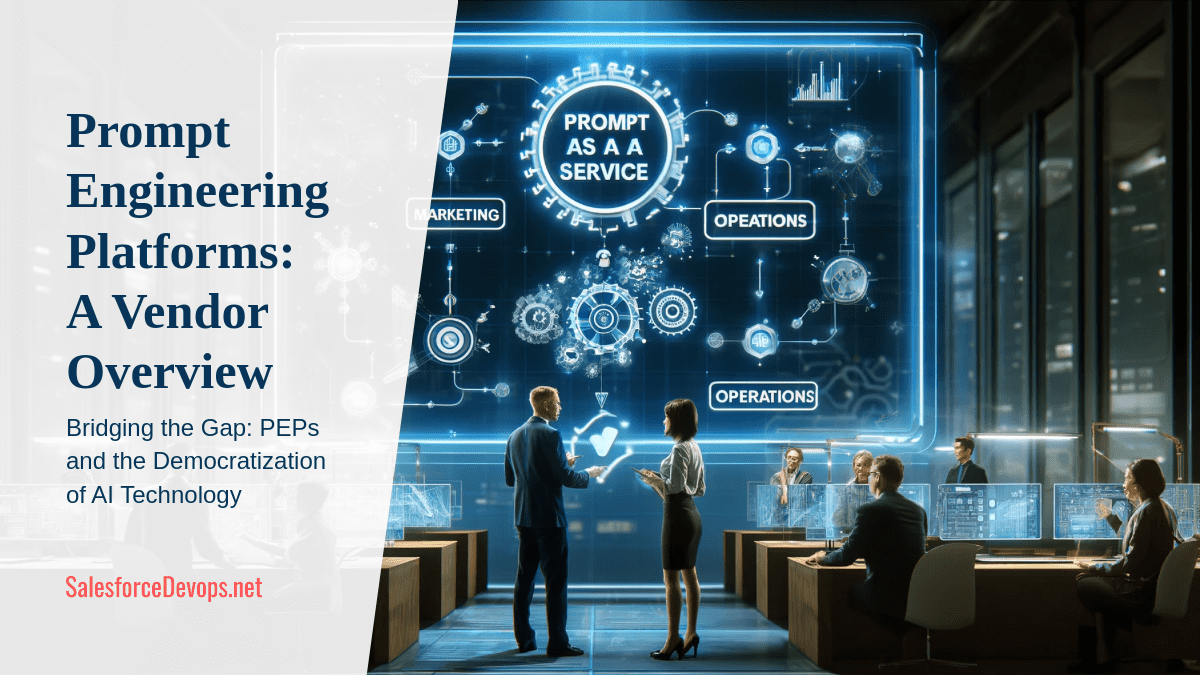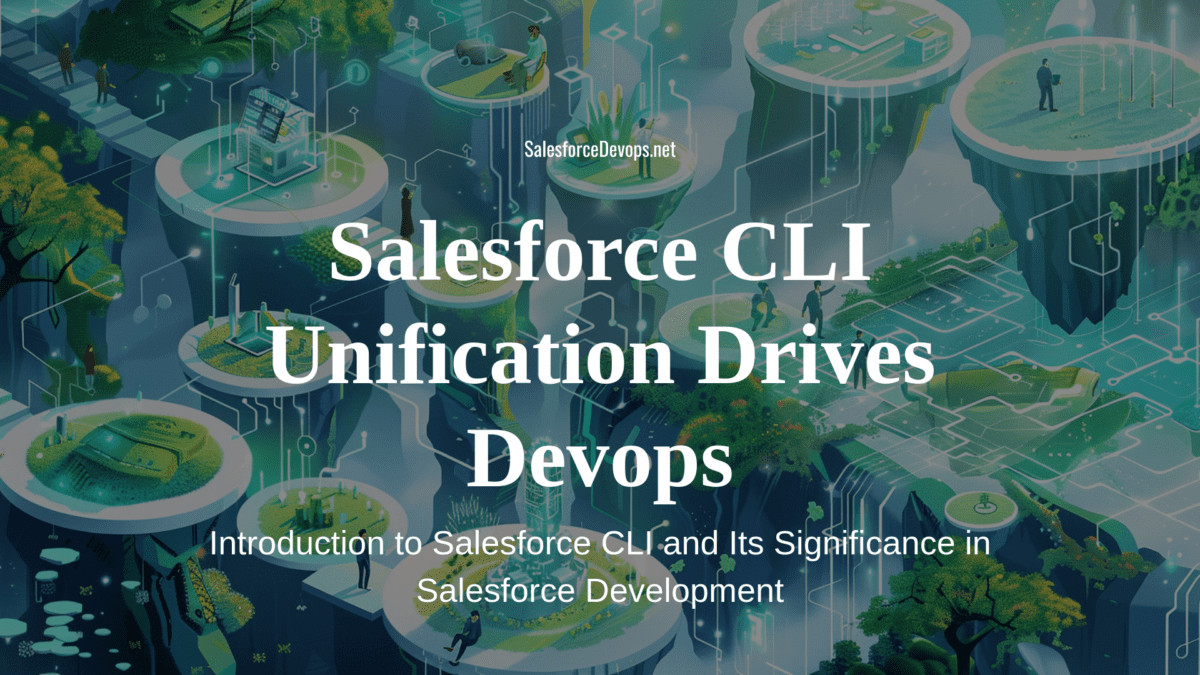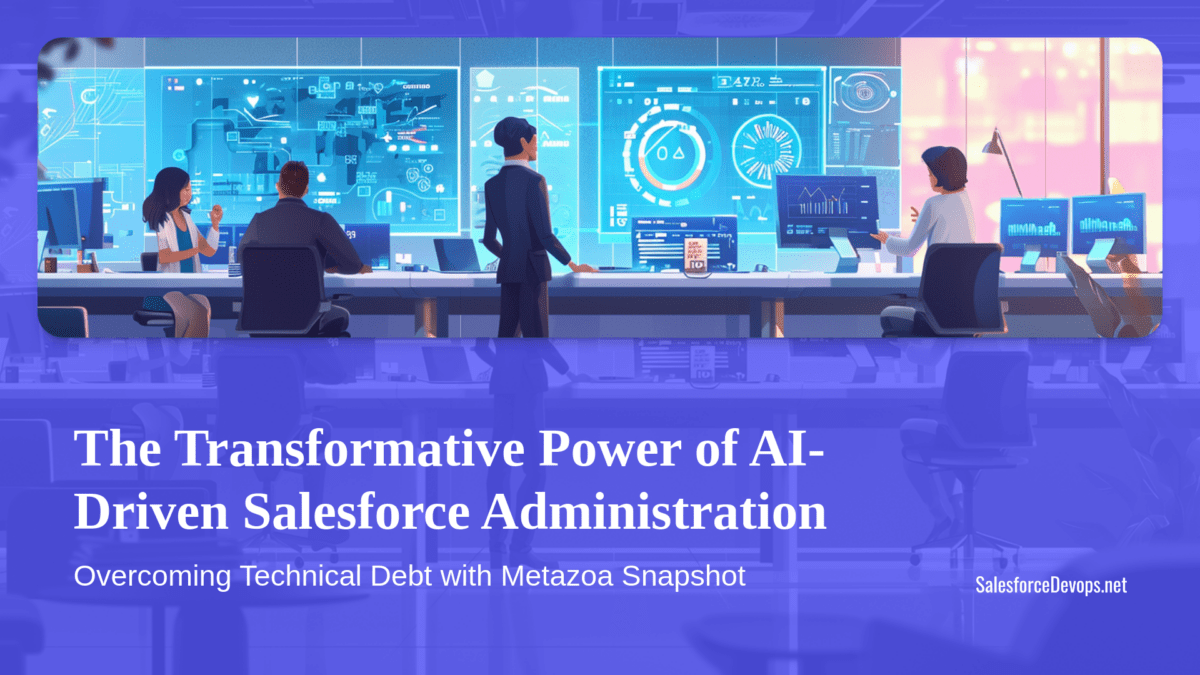Top 20 Salesforce Devops Products Driving Innovation in 2022
Welcome to the 2022 edition of the SalesforceDevops.net Top Products list! Last year, the list was limited to just 5 platform vendors. This year the list is expanded to cover additional platform vendors plus key independent Salesforce devops software vendors in cybersecurity, testing, backup, and observability.
In this post I go over how I picked this year’s list, and then I go over the categories of solutions in in this year’s list. This year the list is presented not only in this article, but in a whole new section on the SalesforceDevops.net website.
- Welcome to Buyers, Platform Owners, and Architects
- SalesforceDevops.net Industry Map
- Salesforce Devops Platforms
- Salesforce Devops Tools
- Backup and Data Security
- Cybersecurity and Compliance
- Application Lifecycle Management
- System Reliability and Incident Management
- Testing Platform
- But, What About…
- Thank You and Happy Hunting!
Welcome to Buyers, Platform Owners, and Architects
This year the SalesforceDevops.net Top Products list takes center stage on the website. You can browse the Top Products list now by picking the new Top Products menu option. That menu takes you to a gallery where each product is indexed. Links take you to pages where vendor-supplied information is available, including links to additional information and descriptions.
I curated these companies from the 48 listed in the SalesforceDevops.net Map catalog. To make the Top 20 list the company needs to be a competitor in either sales or innovation. Some smaller companies were selected because they offer innovative or alternative approaches to Salesforce devops. Each vendor was contacted and worked with me over a several week period to supply the information I’m sharing with you.
SalesforceDevops.net Industry Map
We need a map to guide us on the Salesforce devops journey because is a complex subject. It is an amalgamation of several disciplines and specialties. To help break it down and organize the subject, I’ve categorized Salesforce devops vendor solutions into 10 categories. I show the relationship of these categories in an illustration I call the SalesforceDevops.net Industry Map.
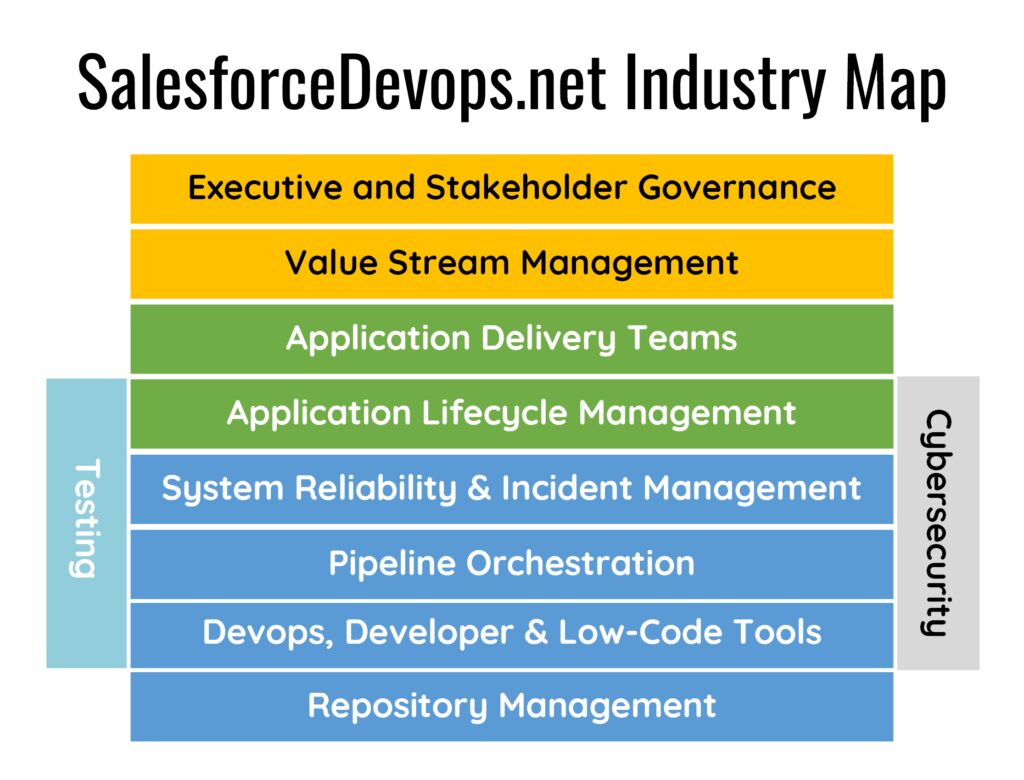
Not everybody needs to deal with the entire Map. In you are in a small organization, or if you are just getting started with Salesforce devops, then focus on the “Devops, Developer & Low-Code Tools” layer. If you’re in a big company with hundreds of developers and dozens of projects, you need to have all 10 categories covered in your Salesforce devops management plan. Check out this article for a complete description of the Map.
Now, let’s dig into those 20 Salesforce devops companies you should know if you’re looking for devops solutions.
Salesforce Devops Platforms
There are significant challenges presented by doing devops on a SaaS system. This means Salesforce devops solutions are still focused the basics, like release automation and source control. And since Salesforce devops is still being figured out, at least two different styles of Salesforce devops have emerged.
The most popular style right now is the Platform approach. This is where a vendor runs a SaaS platform that interacts with Salesforce environments automatically. The platform manages the end-to-end process of performing a Salesforce deployment. The platform is usually operated as a cloud native SaaS application running on AWS or another public cloud. Sometimes the devops platform is an extension of Salesforce itself.
These platforms let low code business users set up and run long, complicated deployment jobs automatically. They also have metadata intelligence capabilities to deal with the complexities of metadata management behind the scenes.
There are seven (7) Salesforce devops platform companies in this year’s list. The two newcomers this year are Opsera and Prodly. Opsera has Salesforce-specific features, and it works in cloud native devops. Opsera is popular with enterprises who need to centralize and organize sprawling devops projects. Prodly is run by Salesforce veteran Max Rudman. The company focuses on low code devops for advanced commerce applications, such as Salesforce CPQ and B2B commerce.
Salesforce Devops Tools
One of the nice things about Salesforce devops platforms is they use a built-in command server to manage long-running Salesforce deployment processes. A distinctly different approach to Salesforce devops is to manually construct a customized Salesforce devops pipeline. Running customized pipelines means an organization needs to build and manage a scripted command server.
More commonly known as a CI/CD system, a command server is a hosted system which runs scripts automatically based on repository or application lifecycle actions. For example, a GitHub Action may be set up to automatically deploy to Salesforce a repository with a NodeJS script. In this case, an Ubuntu Linux environment is dynamically provisioned by GitHub Actions and then it acts as the command server.
While managing a command server is an added complication, many experienced devops professionals prefer the flexibility. Using purpose-built command line interfaces (CLI) to Salesforce metadata management helps not only in running automation, but it aids with developer and maintenance activities.
Sometimes a tool is more than it seems. The Salto CLI, for example, interacts with a SaaS service that helps you manage multiple environments and multiple SaaS platforms. Salto also has application lifecycle management (ALM) features such as change intelligence.
DX@Scale is an open-source project originally developed by an Accenture team in Melbourne, Australia. It assembles the tools and opinionated techniques used to build a sophisticated, package-oriented org from scratch. And OrgFlow is a newcomer that has a different approach to resolving metadata conflicts. OrgFlow also has a SaaS service which automates some deployment activities.
Backup and Data Security
Most Salesforce devops platforms include a backup service. However, the backup and data security offerings from Odaseva provides additional capabilities.
Odaseva offer advanced data security services which bleed into platform cybersecurity capabilities, which is covered next. Ultimately, Odaseva overcomes complexities found in managing Salesforce data security. Through automation and metadata intelligence, Odaseva automatically find and correct data access vulnerabilities. That helps to mitigate cybersecurity threats from both internal and external threat actors.
Cybersecurity and Compliance
Cybersecurity and regulatory compliance are often an afterthought. However, Salesforce platform owners increasingly realize they have used Salesforce to store critical data, including customer personal identifying information. This means that Salesforce orgs are increasingly subject to rules from regulatory bodies and are a target for external threat actors.
There are two general categories of Salesforce cybersecurity and compliance solutions. First are the developer cybersecurity solutions. Developer cybersecurity tools shift left the work of application security. By using solutions from Clayton and DigitSec, Salesforce application security is handled earlier in the software development lifecycle (SDLC). This helps to prevent cybersecurity exploitation during application deployment.
Platform cybersecurity was mentioned earlier when discussing Odaseva and StrongPoint by Netwrix is a newer Salesforce platform cybersecurity solution recently ported from the NetSuite ecosystem. It focuses on Salesforce SOX compliance for public companies.
Application Lifecycle Management
Most of the activity in Salesforce devops currently centers around release management. That is because it is tremendously complicated to deal with Salesforce metadata when performing release management.
But there is much more to devops, including intelligent management of the entire application development process. Today, most organizations start their application lifecycle management (ALM) journey with Atlassian Jira as their primary project management tool.
Some of the Salesforce devops platforms offer a form of ALM integrated directly into their platform. Jira integration is becoming common in the platforms as well. But Jira doesn’t cover some ALM capabilities needed by Salesforce users.
There is a need for more expansive Salesforce ALM services. Tools like Elements.cloud and Panaya ForeSight help augment ALM capabilities, each with quite different approaches. The one characteristic they do share is their ability perform change intelligence. Both vendors use proprietary methods to create accurate dependency maps, which help users plan org changes more effectively.
Both vendors use metadata intelligence to perform sophisticated org management. Elements.cloud specializes in integrating Salesforce application development with business process analysis. Elements.cloud also has connectors to Jira and Salesforce DevOps Center. Panaya uses its change intelligence features to optimize regression testing.
System Reliability and Incident Management
To understand what’s going on with your Salesforce app is still an expensive challenge. Most logging services are only cybersecurity-oriented, so they don’t tend to offer many insights into how Salesforce users are using their apps. So, observability like it is known in the cloud native world is still years away.
But thankfully there have been strides in system reliability and incident management. Pharos is a new ISV with a SaaS system that catches system errors and gets them resolved, instead of ignored.
Testing Platform
Salesforce testing has many facets and goes way beyond the basics of Apex unit tests. The two testing vendors who made the list have different approaches. Provar is a leading, established vendor who has offered a client-based solution to testing for several years. The vendor has steadily upgraded the platform and now has command server integration, and it works with several Salesforce devops platform vendors.
ACCELQ uses a SaaS system to define tests and run them continuously. It is more like other modern testing environments because it translates screen actions into an English-like descriptive language. This helps with making tests resilient during Salesforce version upgrades.
But, What About…
A couple of projects didn’t make the list because of technical or business issues. Salesforce DevOps Center will be added to the Tool list after it becomes Generally Available, which should be later this year. Other large vendors may also be added during the year if warranted.
Thank You and Happy Hunting!
I wish to thank all the vendors and others who helped me put together the 2022 SalesforceDevops.net Top Products list. Sharing curated vendor information with the Salesforce architect, platform owner, and the general Trailblazer community is what SalesforceDevops.net is all about.
The industry is still in the early stages of the Salesforce devops community journey. Vendors are still finding new customer segments and refining their products. And there is a tremendous educational need to help lift teams out of the morass of release management and into the world of key performance indicators and value streams.
I hope this collection of Salesforce devops vendors helps you and your organization! Devops is a complicated beast, so be sure to consult the Salesforce Devops Industry Map when you are hunting for solutions. Be sure to let me know on LinkedIn if this list has helped you find your organization’s devops solution.
